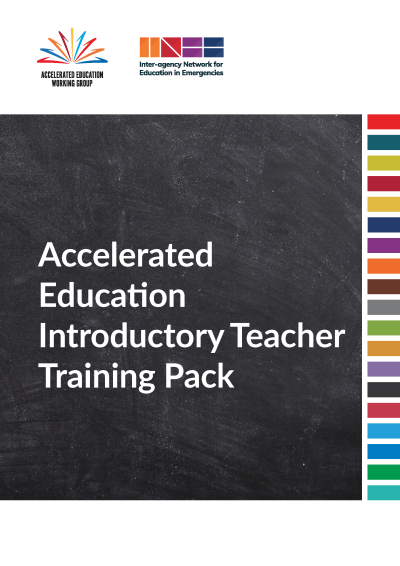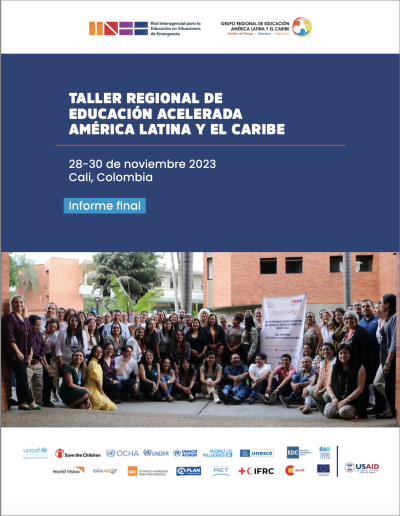Educação Acelerada
Em todo o mundo, há cerca de 105 milhões de crianças e jovens em situações de emergência fora da escola, incluindo desde crianças com 3 anos de idade até jovens com a idade esperada de conclusão da educação secundária. Aproximadamente 52% dessas crianças e jovens vivem em apenas 8 países: Etiópia, Paquistão, Afeganistão, Sudão, República Democrática do Congo, Myanmar, Mali e Nigéria. Essas crianças e jovens que vivem situações de crise e emergência estão fora da escola tanto porque nunca ingressaram em uma instituição de ensino quanto porque desistiram após a matrícula. Os grupos mais marginalizados estão em maior risco, incluindo crianças e jovens deslocados à força, ex-combatentes, meninas e crianças e jovens com deficiência. A cada ano letivo perdido, há maior probabilidade de que essas e esses estudantes não possam retornar à educação formal, resultando em maiores riscos para sua proteção. Estima-se que cerca de 24 milhões de estudantes, do pré-primário ao nível universitário, correm o risco de não retornar à escola em 2020 após a interrupção da educação devido à COVID-19 (UNESCO, 2020).
Então, como podemos oferecer oportunidades educativas para os milhões de crianças e jovens desfavorecidos, que já estão acima da idade de escolarização, ou que simplesmente permanecem fora da escola? A Educação Acelerada pode ser uma estratégia fundamental para responder a essa necessidade.
O que é Educação Acelerada?
Educação Acelerada (EA) corresponde a um programa flexível e apropriado à idade, operacionalizado em um período de tempo acelerado, que visa proporcionar acesso à educação a crianças e jovens desfavorecidos, acima da idade escolar, e que estão fora da escola. Isso pode incluir aquelas e aqueles que perderam a oportunidade ou viram seu processo educativo interrompido por factores de pobreza, marginalização, conflito e crise.
As políticas nacionais de educação frequentemente impedem as e os aprendizes/estudantes de se matricularem na escola primária depois de uma certa idade. As e os estudantes mais velhos que são capazes de se matricular nos sistemas de educação formal são muito mais propensos a desistirem, e quando há uma afluência de estudantes mais velhos, não se verifica apenas o possível problema de um maior número de salas de aula sobrelotadas e condições de ensino difíceis com múltiplas faixas etárias, mas há também riscos consideráveis de proteção ao juntar aprendizes mais velhos e mais novos em uma mesma turma. Os PEAs certificados são uma forma fundamental e estratégica de permitir que as e os estudantes mais velhos tenham acesso a uma educação adequada à sua idade.
Os PEAs procuram reduzir o número de anos de um ciclo de aprendizagem e permitem que as e os aprendizes/estudantes concluam um nível de educação equivalente e certificado em um período de tempo mais curto. Uma vez concluído o PEA, espera-se que elas e eles se reintegrem no sistema de ensino formal regular, ingressem no ensino técnico e profissional baseado em competências ou se integrem diretamente no mercado de trabalho com competências certificadas de literacia e numeracia.
A estrutura dos PEAs varia no que diz respeito ao seu ritmo, às faixas etárias a que se dirigem e à abordagem de ensino e aprendizagem que empregam.
Para mais informações sobre o trabalho da INEE com temas de Educação Acelerada, visite a página do Grupo de Trabalho sobre Educação Acelerada (GTEA).
Esta coleção foi desenvolvida com o apoio de Martha Hewison, Coordenadora do GT de Educação Acelerada da INEE.








